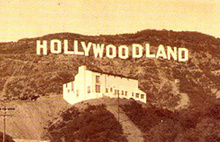 Two weeks ago we published an opinion piece where we pointed out some unfortunately-phrased comments from MPAA boss Chris Dodd.
Two weeks ago we published an opinion piece where we pointed out some unfortunately-phrased comments from MPAA boss Chris Dodd.
The former congressman pointed out that the film industry was able to thrive because of intellectual property protections.
“The ability to give birth to an idea and convert it into economic success, whether it is the content of a film or the technology of the internet, depends on copyright and patent protection,” he said, referring to the history of US film.
We thought that was ironic. Why? Because Hollywood was founded by a group of independent filmmakers who “fled” from Edison’s patents, among other things. The full story (see Copyhype) is richer, but it’s a well-known fact that those who now rule Hollywood refused to obey the patents.
To emphasize the irony we described Hollywood’s founders as “thieves” and “pirates,” using quotation marks. Aside from these terms, the events described in our article are mostly undisputed. In no way did we say that this history justifies modern-day piracy, we simply pointed out that Dodd’s comments were unfortunate.
The MPAA, however, doesn’t like to be called pirates. In a recent blog post they refer to the Copyhype post, claiming that what we and others such as Lawrence Lessig wrote is all lies. We are thieves.
“If you ask the operators of The Pirate Bay and their apologists, they’ll say Hollywood was built by a band of pirates, fleeing stringent East Coast patent protections to a free and open land to create at will. This theory conveniently parallels their own existence, as they seek to justify profiting from digital theft.”
And these thieves are wrong, the MPAA claims.
Hollywood’s founders were no pirates, but freedom fighters who rebelled against a “copyright” monopoly.
“The patents at issue were held by the Motion Picture Patents Company, which, through restrictive tie-in agreements and licensing practices, severely impeded independent filmmakers from entering the market.”
Hmmm, that sounds familiar.
These independent filmmakers lost the first patent lawsuit, but eventually the court sided with them.
“The status quo was challenged, and shortly afterwards, the Supreme Court determined that MPPC’s licensing practices give it ‘a potential power for evil over’ movie producers which ‘would be gravely injurious to th[e] public interest.’ This 1917 ruling severely undermined MPPC’s unfair business practices.”
Fair enough, but the MPAA’s version of the truth doesn’t change anything about the fact that the founders of Hollywood were challenging existing patents. That they won in the end doesn’t mean that patents weren’t violated in the years before.
So Dodd’s comment that “the ability to give birth to an idea and convert it into economic success, whether it is the content of a film or the technology of the internet, depends on copyright and patent protection,” is still rather unfortunate.
Especially because Dodd specifically referenced a time where patents were infringed en masse.
Also, the MPAA’s response in their recent blog post is in itself unfortunate. The lobby group says that Hollywood’s freedom fighters beat Edison because the court agreed that the MPPC had “a potential power for evil over” movie producers which “would be gravely injurious to th[e] public interest.”
Interesting, because today the MPAA is also quite powerful. They are the moral judge who decides what films the public is allowed to see. Not just for the major studios they represent, but also films of independent studios who are NOT an MPAA member company.
Through its ratings system they can make or break films, a “potential power for evil” for sure. Just ask South Park creator Matt Stone or watch “This Film is Not Yet Rated” to get an idea of what’s going on behind the scenes.
Fin.





